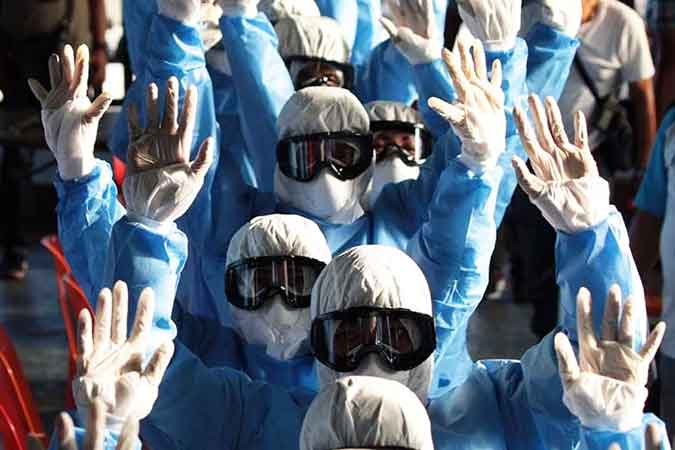
THE PHILIPPINES has signed on to an Association of Southeast Asian Nations (ASEAN) commitment to reduce trade restrictions on essential goods that help combat the pandemic.
The memorandum of understanding signed by Trade Secretary Ramon M. Lopez at the 19th ASEAN Economic Community Council Meeting on Nov. 10 hopes to reduce non-tariff measures and ensure information-sharing on trade among member states, the Department of Trade and Industry (DTI) said in a statement Thursday.
Non-tariff measures are policy measures other than ordinary tariffs that potentially have an effect on the flow of international trade in goods. They include sanitary and price-control measures as well as border payment procedures.
Intended to ensure the continuous movement of essential goods across borders, the memorandum covers 152 tariff lines of medicine and medical supplies contained in the ASEAN List of Essential Goods.
Member states may still impose restrictions in cases of a public health emergency. Potential restrictions must conform with international trade obligations.
The DTI said that the agreement will help reduce export bans on medical goods in the region. Eighty economies had banned or limited exports of personal protective equipment like face masks during the early months of the pandemic, the World Trade Organization said in April.
The memorandum is part of the ASEAN Comprehensive Recovery Framework, a pandemic recovery plan that covers health system improvement, economic integration, and digital transformation.
The member states are also looking into expanding the essential goods list to cover food and agricultural products, DTI said.
“This action is a clear manifestation of ASEAN’s shared commitment in keeping markets open, ensure the unhampered flow of essential goods, and show economic resiliency amid COVID-19. We also see this as a positive development that will help the Philippine business community in trading with the region,” Mr. Lopez said. — Jenina P. Ibañez

